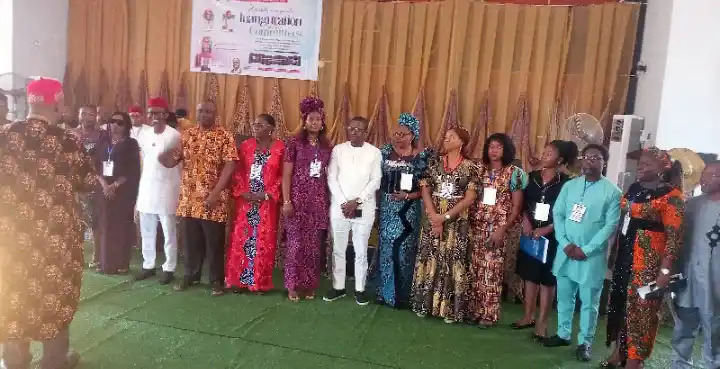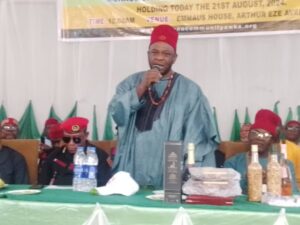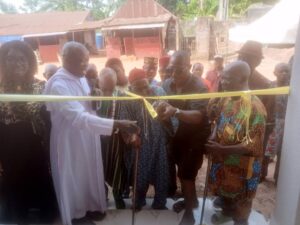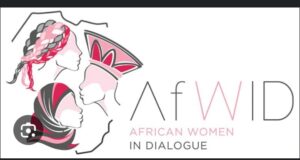Igbo: From Extinction To Language Of Innovation

Our foresight and projection are to unlock the potential of the next generation of Igbo children by teaching them basic sciences in the Igbo Language. This is our journey to the moon”. That is the mission statement of Mr. Okoro Chinedum Benedict, Executive Director, OCHIE Igbo STEM School. An offshoot of Odinala Cultural Heritage Foundation.
OCHIE Igbo STEM School project is an effort of Mr Okoro and his group to take the Igbo language and culture a notch higher.
At the turn of the century, the United Nations Education and Cultural Organisation (UNESCO) had classified the Igbo language as a threatened language that stands the risk of possible extinction by the end of the 21st century. According to the respected world body, Igbo had at then about 20 million speakers. The report further stated that “of about 7000 languages in the world, one dies every two weeks.”
Since that prediction, Igbo people have invented different groups to keep the language alive. But nothing can compare to the ambitious OCHIE Igbo STEM School project.
At Nnamdi Azikiwe University, Awka a fortnight ago, for the inauguration of the committees for the development of curriculum for Science, Technology, Engineering and Mathematics (STEM) wherein Igbo will be the language of instruction and evaluation, Mr. Okoro explained that the group was registered in 2016 with the Corporate Affairs Commission and has since then sought and secured in collaboration with Nnamdi Azikiwe University and AGILO RESEARCH PVT. LTD of India and partnership with International Institute of Tropical Agriculture (IITA) and Nigerian Institute for Oil Palm Research.
Okoro said OCHIE Igbo will adopt AGILO RESEARCH PVT.LTD model of instruction. He said: “When we begin you will understand why the Asian Tigers learn faster and they gave us curriculum. The job is made easier because all we do is to adapt their curriculum and the Igbo people will take it up from there. The problem is in the thought process. It is the level of comprehension that determines appreciation. “The reason why science is difficult is because if you teach a child in foreign language he will begin to break it down in his head because what is taught is not at tune with his environment. The internalisation of Igbo language makes the child to understand more so that any object you mention he already has the mental picture. If your language is not used in the evaluation and communication, then it is gone.”
According to him, it is a prolegomenon to Igbo Silicon Valley, adding: “OCHIE Igbo STEM Project is borne out of the conscious desire to unbundle the clog, barrier and harrowing experiences imposed on native speakers of Igbo language who find it difficult coping with English language. The project is a benign search to harness the gains associated with teaching science, technology, engineering and mathematics using the mother tongue”.
“Unarguably”, he continued: “this is the framework that the Asian Tigers like Japan, India, China, and Korea leveraged on to earn their deserved place in the world of science, innovation and information technology”.
He summarised the essence of the exercise thus: to preserve Igbo language, to solve a societal problem and to preserve our culture.
The Vice Chancellor of Nnamdi Azikiwe University, Professor Charles Okechukwu Esimone, in an interview said that when the group approached him for collaboration he did not hesitate to embrace it. Esimone said that if Igbo follow what industrialised nations have done by making their language the mode of instruction, especially STEM, in Indegenous language they are going to make advancement. He placed it on record that Unizik is the first university in the South East to make the study of Igbo language compulsory as part of its general studies. This is according to him, to “ensure that our culture will not be lost to rapidly emerging civilizations with their pluses and minuses”.
He added: ” That strength in language that has been eroded is our strength. So, when OCHIE Igbo came I did not give it a second thought. This is the way to go. Our university has the best in terms of human resources to execute it and it is a mandate that can be achieved”.
Esimone noted that that is how the Unizik began the study of Chinese language and with Confucius Institute has extended it to many institutions.
On hand to inaugurate the committees was Prof. Fred Eze, President of Ohanaeze Ndigbo, Enugu State, who represented the President- General of Ohanaeze Ndigbo Worldwide, Chief Emmanuel Iwuanyanwu.
Eze said it was a special day theat deserved a public holiday because such important occasion has not occurred in Igboland in the past 30 years. He lauded the initiative emphasizing that there is no such thing as Technology Transfer as teaching STEM in native language cannot be transferred.
The keynote Speaker and former Vice Chancellor of University of Nigeria, Professor Chinedu Nebo, who spoke on the topic: “The Potentials of mainstreaming Igbo as the language of instruction and evaluation for STEM in Igboland’, called on South East governors to make the language a text-run for those seeking for government work in the region.
He argued that writing existed in Igboland in the earliest of time in ‘Nsibidi’ and so no one can deceive people that Igbo have no mode of writing before now.
Part of ceremony was swearing in of members of the Curriculum Committee, lauching of the curriculum and a remote-controlled aircraft to illustrate how developed world launch their young ones into invention.Some other people that attended the ceremony included Dr.Chukwuma Ogugua Orji national president of OCHIE Igbo, Deputy Vice Chancellor of Unizik (Administration) Prof. Joseph Ikechebelu, Prof. Lilian-Rita Akudolu, chairman OCHIE Igbo STEM Curriculum Development, among several other intellectuals.









